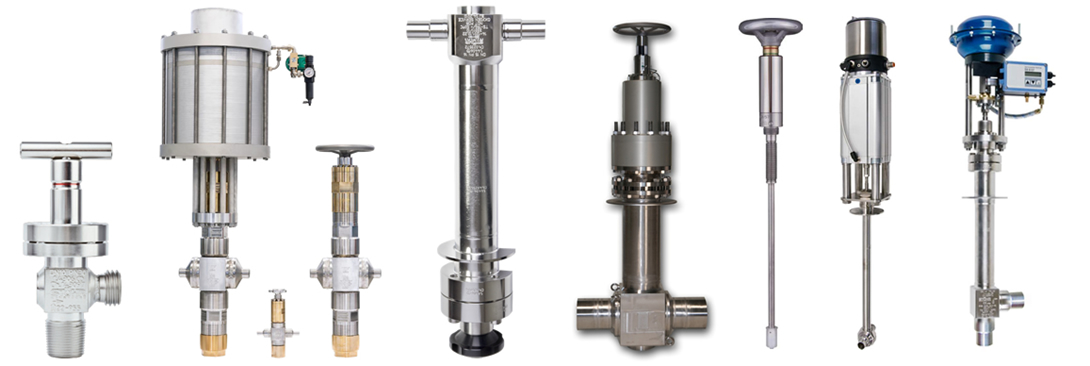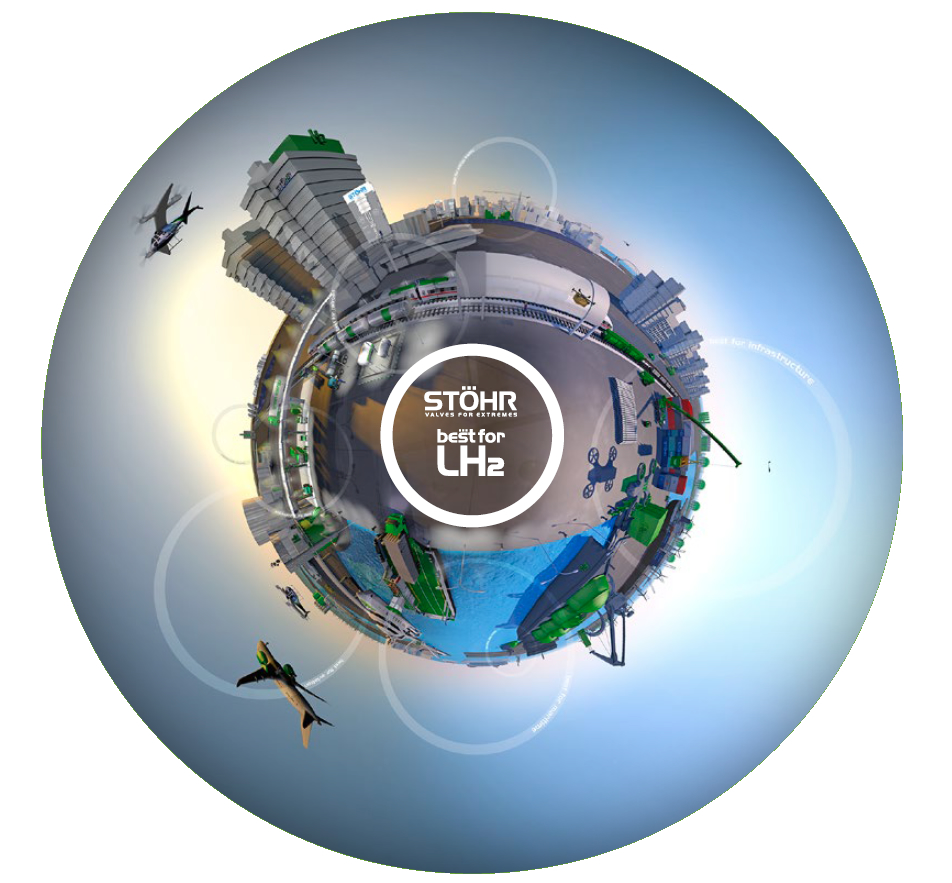Today, Hydrogen represents a modest fraction of the global energy mix and at Boiswood we are committed to working with our partners towards delivering a positive impact on the environment by offering the best standard and customised cryogenic valve solutions for both stationary and mobile H2 applications.
Our specialist valve solutions are designed and manufactured to meet the stringent working conditions at all extreme medium temperatures, sizes and pressure levels. Whether you're working on stationery applications for infrastructure, filling stations, decentralised energy supply systems or mobile applications for aviation, maritime, automotive, aeronautics or railroad, we look forward to working with you on your challenge.

Special Valve Design Services
On the road to a climate-friendly mobility, we have worked in partnership with Stoehr Armaturen, to deliver some of the most customised valve solutions for operation under the harshest conditions. We can work with you on a solution to meet the following specifications:
- Valve Types – Globe Valves, Shut-Off Valves and Control & Regulating Valves (All Bellows Sealed with additional 2nd seal to the environment), Check/Non-Return Valves, Filters, Blow-Off Valves and Valve Blocks.
- Medias – Hydrogen, as well as other gases and liquids including (He, O2, CH4, NH3, CH3OH).
- Sizes – Nominal Diameters ranging from DN (<1/8”) to DN300 (12”).
- Temperatures – Cryogenic from 2K to 243K (-271°C to -30°C), Ambient from 243K to 323K (-30°C to +50°C) and Hot up to 676K (+400°C).
- Pressures – All pressure levels all the way up to ultra-high pressure of 1,000 BAR (100 mPa/15,000 PSI).
- Tightness – He leak tightness of 10E-8 mBAR l/sec to environment, He leak tightness of 10E-6 mBAR l/sec through the seat (subject to confirmation of valve type).
- Materials – All fully Stainless Steel materials (either 316L Stainless Steel or Special Request)
- Certifications – QM based on ISO 9001:2015, Pressure Vessel Regulation and AD2000-W2 H0, Explosion Proof for flammable media according to ATEX directive.
Cryogenic Valve Applications for LH2
Some of the most common industries and applications for Hydrogen valves are listed as follows:
- Infrastructure – including storage tanks, distribution centres, filling stations and buffer storage. Special valve solutions include a 900 BAR LH2 check valve and a LH2/GH2 hydraulic globe valve.
- Automotive – including on-board hydrogen powered fuel cell systems and filling stations. Special valve solutions include electric, pneumatic and hydraulic globe valves for vacuum jacket pipes and systems.
- Rail – including on-board hydrogen gas supply, mobile tank trailers and stationary filling equipment. Special valve solutions include an upside-down pneumatic globe valve (for installation at 180°).
- Marine – including gas supply for submarines, harbour equipment and loading facilities for tankers, yachts and ferries. Special valve solutions include LOx globe control valves for cabin oxygen supply and hydraulic operated globe valves for Ammonia and Methanol.
- Aviation – including hydrogen powered gas engines, airport hydrogen supply and fuel cell systems. Special valve solutions include cryogenic on/off and regulating valves for vacuum jacketed pipes and systems.
- Aeronautics – including ground-based infrastructure such as rocket engine test benches, storage farms, transport lines, fuel filling for launchers and mobile tanks. Special valve solutions include tank shut-off valves and high-pressured engine test bench valves.
For a World with Green Energy

Today, technological developments, the rapid decline in the cost of renewable energy sources and an urgent need to dramatically reduce greenhouse gas emissions all combine to open new possibilities for Hydrogen use. Hydrogen is currently enjoying a renewed rapid growth in attention, both in the UK and around the world. With the ability to be used as feedstock, fuel and for energy carriage and storage, the gas has many possible applications throughout a multitude of industries.
Most importantly, Hydrogen emits no Carbon Dioxide and creates very minimal air pollution when in use – making it one of the most effective solutions when it comes to decarbonising industrial processes and economic sectors where carbon reduction is both urgent and hard to achieve. It’s clear that Hydrogen has an essential part to play in supporting international commitments to reach carbon neutrality by 2050 and in the global effort to implement the Paris Agreement whilst working towards zero pollution.
To discuss more about how we can help you with your applications, please get in touch with our experienced engineers today.
